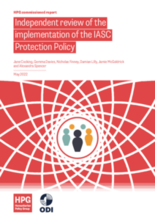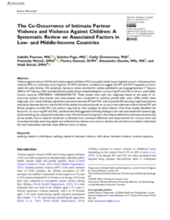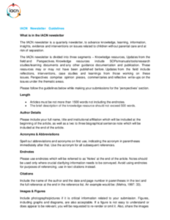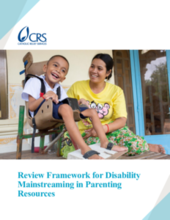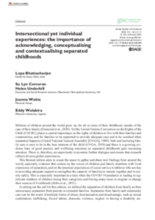Displaying 751 - 760 of 4424
Individual studies suggest most children and youth in residential care centres (RCCs) have living parents, and parental death is not the primary antecedent to placement in residential care. The goal of the present review was to examine the literature to better understand the primary antecedents to placement in RCCs overall. One hundred thirty-two studies, including 60,683 children in 47 nations meet eligibility criteria for inclusion for the overarching review of antecedents of placement.
This systematic literature review searched for studies published in any language between 1st January 2000 to 16th February 2021 and identified 33 studies that provided findings for co-occurring IPV and VAC in 24 low- and middle-income countries.
We at PFAN, IPAN, and SWAG are pleased to announce our joint webinar on language and why it matters from a parental and professional point of view.
The purpose of this U.S.-based study was to determine whether children with developmental disorders (DDs) in protective custody are more likely to experience specific placement types and stay in care longer than their typically developing peers. Furthermore, in the DD-only group, the authors examined whether the likelihood of each placement type differed by specific DD diagnosis.
This chapter in the "Attachment-Informed Parent Coaching" book discusses how to use attachment-informed parent coaching to help children in foster care heal from the multiple layers of attachment trauma they have experienced. The author describes how to help children in foster care develop healthier relationships with both foster and biological parents.
India Alternative Care Network is calling for contributions to its newsletter, IACN Quarterly.
This Framework for Disability Mainstreaming in Parenting Resources is a tool to help organizations and practitioners to review existing parenting resources in terms of information and content gaps, limitations of instructional guidance, and at-home activities. The aim of the framework is to ensure parenting resources are inclusive of the needs of parents of children with disabilities ages 0 to 17 years.
The Eastern and Southern Africa Regional Learning Platform hosted a webinar on April 13, 2022, featuring a panel of people with lived experience in care.
In this editorial published in the special edition of the Global Studies of Childhood journal focused on separated childhoods in April 2022, the authors aim to create the space to gather and share new findings from around the world, especially evidence that centres on the voices of children and family members with lived experience of separation, and on the practical experiences of social service workforce who are key to providing adequate support to strengthen the capacity of families to remain together and to reunite safely.

